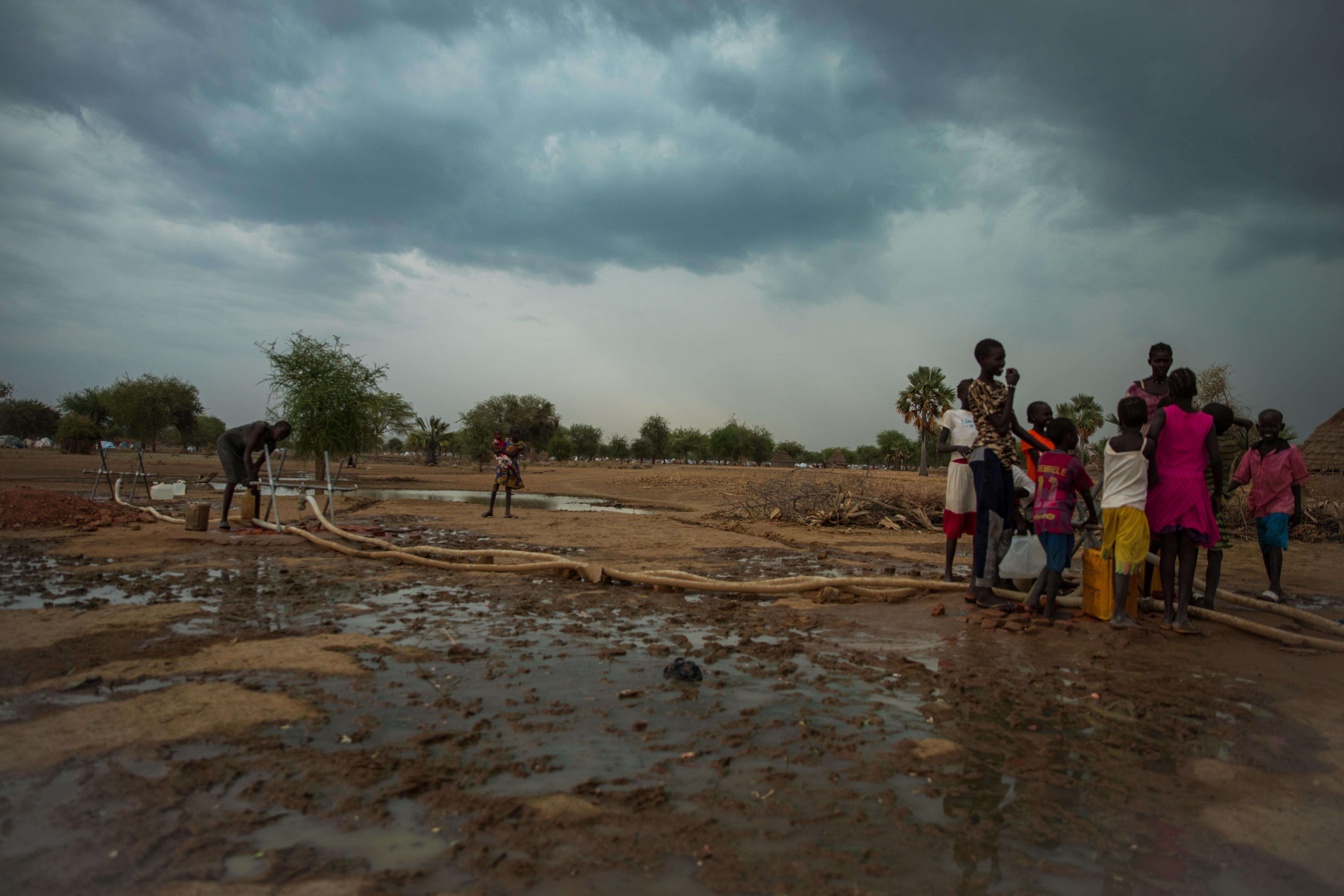JUBA, South Sudan, April 25, 2022—Tens of thousands of displaced people in Twic County are in need of food, shelter, and sanitation, but the humanitarian community in South Sudan has failed to scale up assistance, Doctors Without Borders/Médecins Sans Frontières (MSF) said today.
Intercommunal clashes in Abyei Special Administrative Area caused people to flee en masse from the town of Agok in early February, with some heading north to Abyei and others going south into Twic County in South Sudan's Warrap State.
In six locations in Twic County where MSF is currently responding, about 33,000 displaced people, primarily women and young children, have settled in the open. Many lack shelter, food, clean water, and other essentials.
"The situation in the displacement camps is terrible," said Susana Borges, MSF head of mission for South Sudan. "People are living in makeshift shelters made of sticks and cloth. Parents are literally pulling leaves from the trees and cooking them to feed their children because of lack of food. We are doing our best to respond but more assistance is needed from other organizations to meet the scale of this crisis."
For the past two months, MSF has provided a total of 374 metric tons of food and nearly 15 liters of clean water per person per day in multiple locations. MSF has also constructed 135 latrines and distributed relief items such as blankets, mosquito nets, jerry cans, and soap to about 10,000 families. Yet many critical needs remain, and humanitarian organizations have generally failed to respond quickly and adequately, resulting in dire living conditions in the camps.
MSF teams have been running mobile clinics in three sites where displaced people are sheltering. The health conditions they see are closely related to the poor living conditions and limited access to food. The lack of shelter, latrines, and mosquito nets puts people at risk of diseases such as malaria and cholera. With the rainy season about to begin, the health situation is likely to deteriorate further if the humanitarian response is not scaled up immediately, including food, shelter and drinking water.
"The rain is almost here, and people have small children with them," said Atem, a father of two children living in Gomgoi displacement camp after fleeing their home in Agok. "If the rain falls now, they have no houses to go to. They need shelter, they need food."
It is very unlikely that people will return home any time soon as they fear further violence. Atem's house and shop were looted and people in the community were attacked, he said.
"I have seen people that have been shot—people who are innocent—people like me," Atem said. "How can I think of going back again? It is better for me to suffer here."
MSF has been working in Agok since 2006 and established a hospital there in 2008, providing a wide range of health services for some 140,000 people. Following the initial violence that erupted on February 10, 2022, MSF suspended services at the hospital and instead started providing medical and humanitarian assistance in Twic County and in Abyei town, where many displaced people are sheltering.




